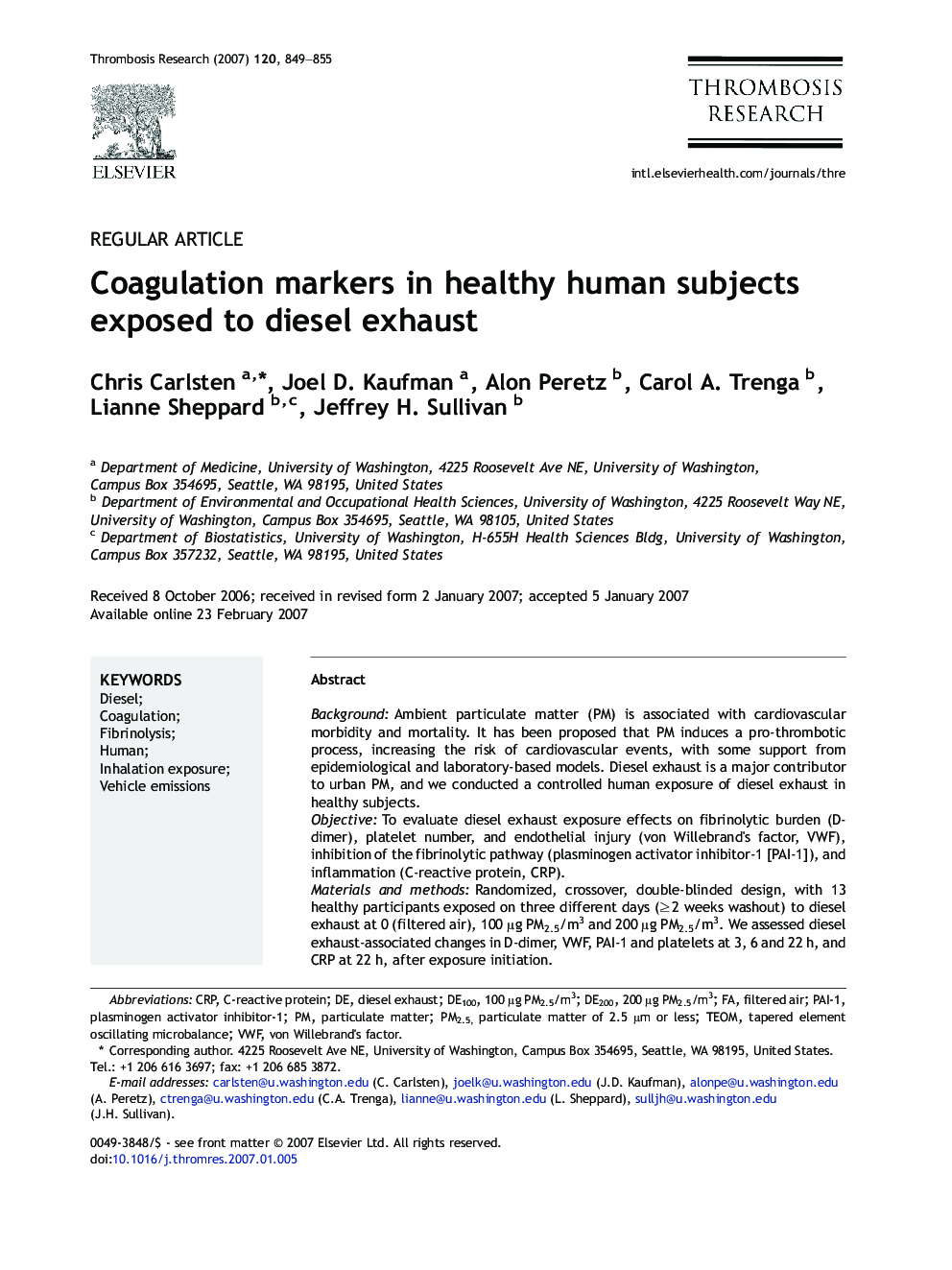| Article ID | Journal | Published Year | Pages | File Type |
|---|---|---|---|---|
| 3030053 | Thrombosis Research | 2007 | 7 Pages |
BackgroundAmbient particulate matter (PM) is associated with cardiovascular morbidity and mortality. It has been proposed that PM induces a pro-thrombotic process, increasing the risk of cardiovascular events, with some support from epidemiological and laboratory-based models. Diesel exhaust is a major contributor to urban PM, and we conducted a controlled human exposure of diesel exhaust in healthy subjects.ObjectiveTo evaluate diesel exhaust exposure effects on fibrinolytic burden (D-dimer), platelet number, and endothelial injury (von Willebrand's factor, VWF), inhibition of the fibrinolytic pathway (plasminogen activator inhibitor-1 [PAI-1]), and inflammation (C-reactive protein, CRP).Materials and methodsRandomized, crossover, double-blinded design, with 13 healthy participants exposed on three different days (≥ 2 weeks washout) to diesel exhaust at 0 (filtered air), 100 μg PM2.5/m3 and 200 μg PM2.5/m3. We assessed diesel exhaust-associated changes in D-dimer, VWF, PAI-1 and platelets at 3, 6 and 22 h, and CRP at 22 h, after exposure initiation.ResultSignificant changes did not occur in any primary endpoints. Among secondary endpoints, diesel exhaust (200 μg PM2.5/m3) effect on PAI-1 levels at 22 h was of borderline significance, with a 1.32-fold decrease after exposure to diesel exhaust (200 μg PM2.5/m3), relative to filtered air (CI 1.00 to 1.54). Diurnal patterns in D-dimer and PAI-1 were observed.ConclusionsIn healthy individuals, exposure to 200 μg PM2.5/m3 diesel exhaust did not affect primary pro-thrombotic endpoints. Thus, these data do not support a diesel exhaust-induced pro-thrombotic phenomenon. Replication of these studies should be carried out to ascertain whether or not they inform our mechanistic understanding of air pollution's cardiovascular effects.
